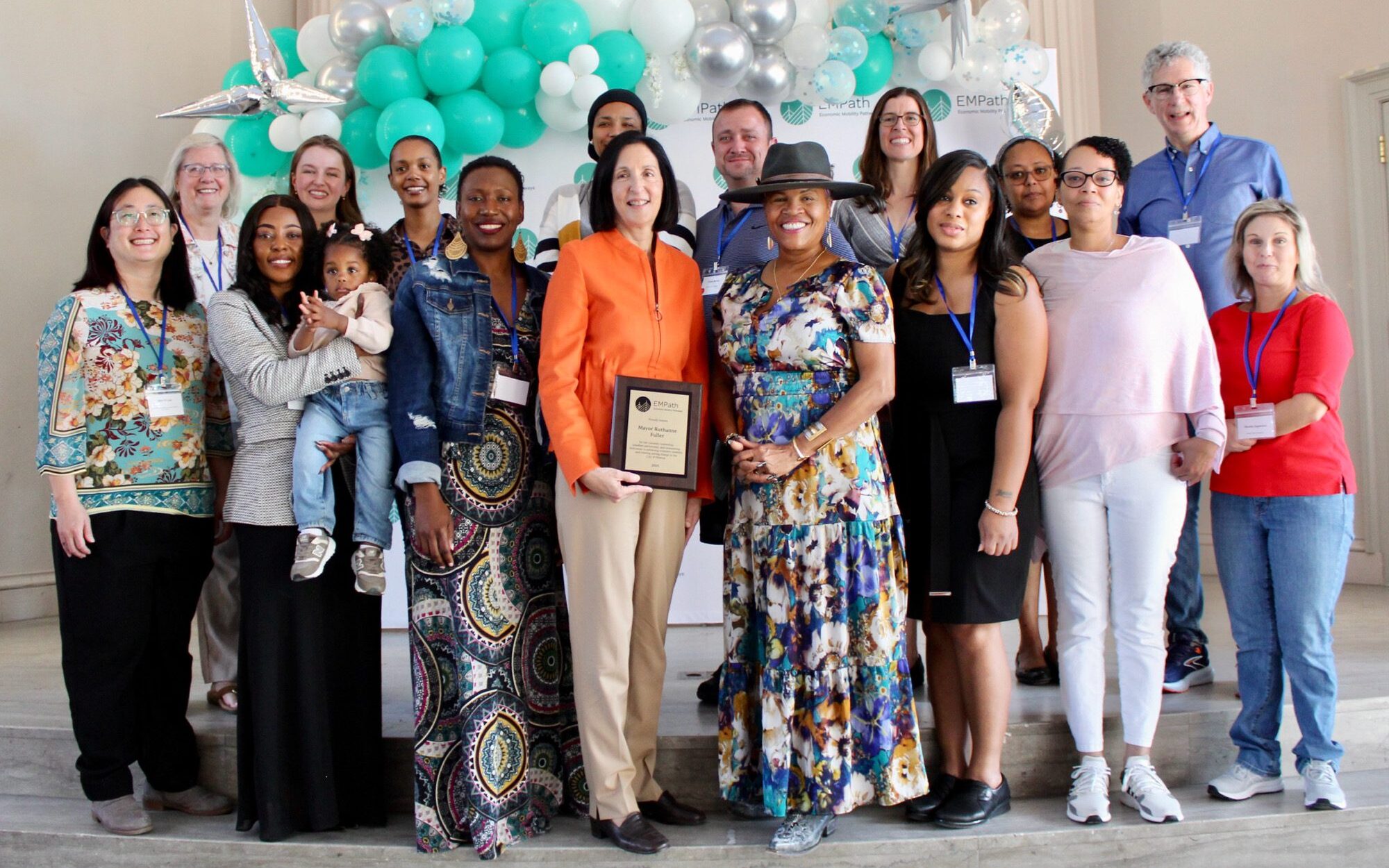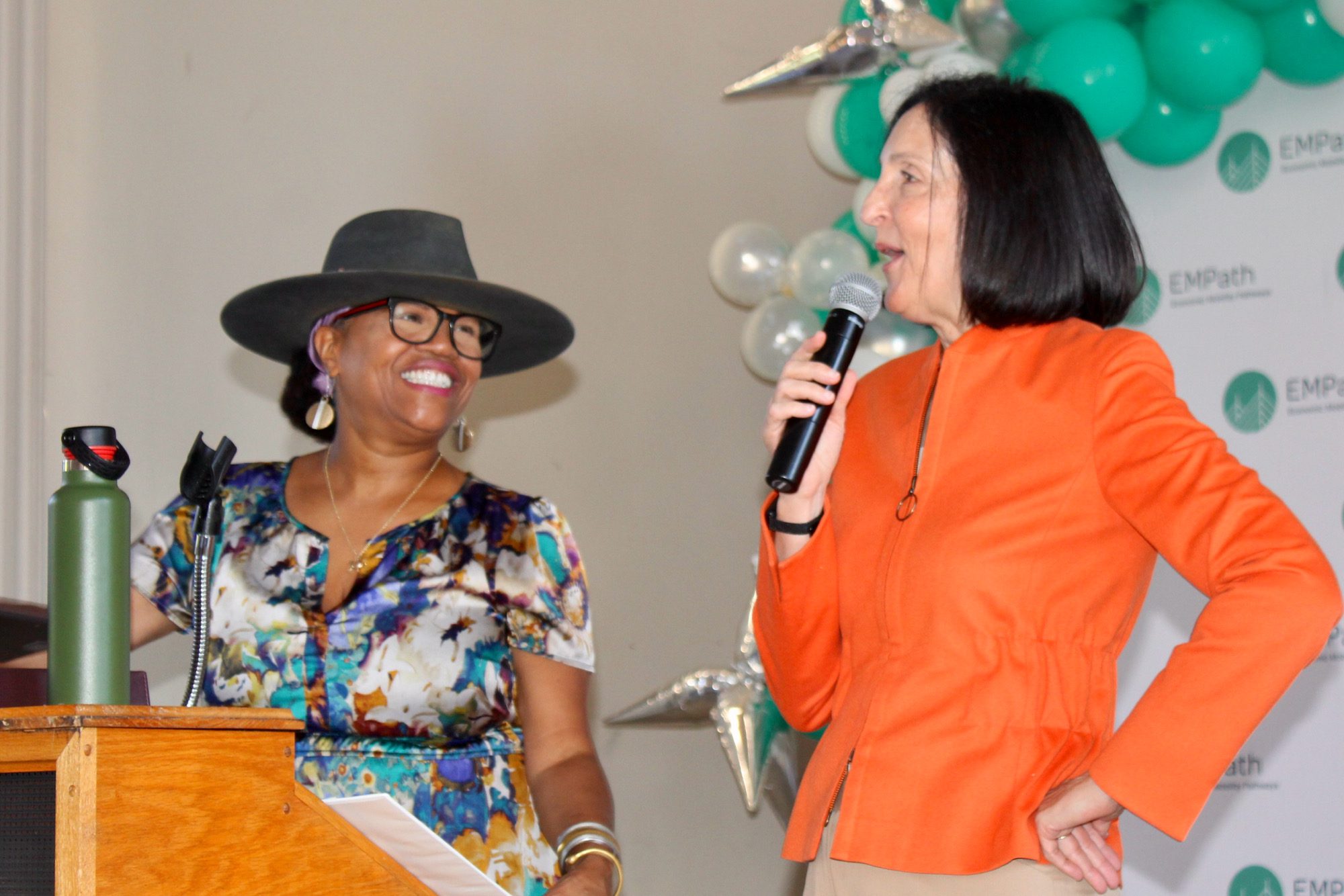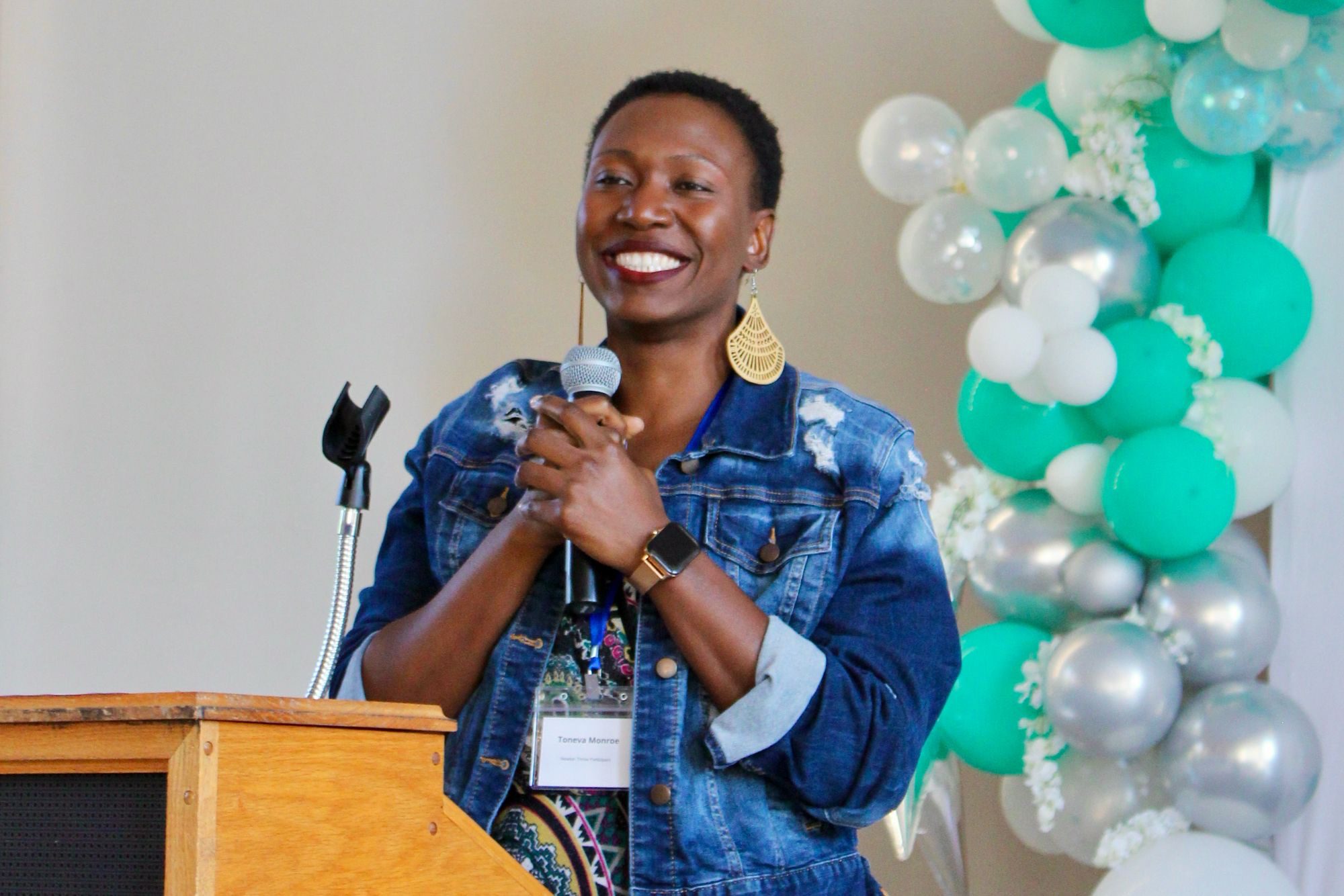Newton Thrive celebrates first participants completing post-COVID economic mobility initiative
Sep 29, 2025
Siena Griffin | The Newton Beacon

Newton Thrive staff, program participants, and City of Newton employees pose with Kim Janey, president and CEO of EMPath, and Ruthanne Fuller, mayor of Newton. Photo by Sofie Koonce, EMPath
Newton residents gathered with mentors, city officials and nonprofits at City Hall on Sept. 20 to celebrate the first participants’ completion of Newton Thrive, an initiative that provides two years of money and coaching services to low-income residents affected by the Covid-19 pandemic.
The city announced in February 2023 it would allocate $1.5 million of Newton’s federal American Rescue Plan Act funding, meant to aid those impacted by the pandemic, toward an economic assistance program, in partnership with the Boston nonprofit Economic Mobility Pathways, or EMPath.
The first wave of participants in Newton Thrive completed the program in August, and program leaders are reflecting on its results.
Newton Thrive is unique because it offers participants both guaranteed monthly income and one-on-one coaching services, said Ashley Winning, EMPath vice president of research and evaluation. The program’s services began in September 2023.

Kim Janey, president and CEO of EMPath, and Ruthanne Fuller, mayor of Newton, speak at a ceremony celebrating the completion of Newton Thrive. Photo by Sofie Koonce, EMPath
“This infusion of cash is going to last for two years, but then at the end, how are you setting yourselves up to continue to thrive and grow beyond that?” said Winning, adding that cash assistance and coaching “go hand in hand” to support participants’ financial goals.
Newton Thrive enrolled 50 participants, who met eligibility requirements including residency in Newton, income at or below 50% of the area median and an under-18 dependent in the household.
That’s where “mobility mentoring”—a “person-centered approach to economic mobility coaching”—comes in, Winning said. Participants who met at least once a month with a mobility mentor received a monthly stipend of $251, which Winning said participants typically spent on basic needs.
Gamuchirai Madzima, director of Newton Thrive, said mentors aim “to keep our participants on track with their goals and also connect them to resources that help them to overcome whatever barriers or challenges that may be in the way of them achieving that goal.”
Participants achieved goals including applying to a set number of jobs in one week, paying down credit card debt over three months, and finding an affordable home, according to a report on Newton Thrive by the University of Massachusetts Donahue Institute.
Retaining participants for the full program duration can be difficult in longer-term service programs, said Christina Citino, senior research manager at the UMass Donahue Institute, who consulted on and evaluated Newton Thrive. So, when looking at the data from Newton Thrive, Citino found the high retention rate “striking.”

Toneva Monroe, a participant in Newton Thrive, speaks at a ceremony celebrating the program. Photo by Sofie Koonce, EMPath
Of the participants who enrolled in the program in April 2024, 90% stayed through March 2025, according to the Donahue Institute’s report.
“In fact, most of them would have liked the program to go on and the coaching to go on beyond two years,” Citino said.
The City of Newton was “involved every step of the way,” Madzima said, particularly the Department of Health and Human Services.
A community effort, Newton Thrive involved collaboration with local service organizations, including Family Access of Newton, Newton Community Development Foundation, Newton Housing Authority, CAN-DO and Newton Neighbors.
Newton Thrive will conclude in March 2026, when the last participants, who began the program in March 2024, hit the two-year mark, according to the second-year report. American Rescue Plan Act funds must be spent by Dec. 31, 2026, according to the U.S. Treasury Department.
Although Saturday’s celebration marked the completion of the program’s first participants, Winning said it was a testament to the program’s success overall.
“It really was what it was intended to be: a celebratory community gathering to recognize the work and accomplishments of the families who have participated,” Winning said.
Citino said she doesn’t yet have a “full picture” of Newton Thrive’s long-term impact, since the program is not fully completed and because future economic conditions will still impact participants’ situations. It’s the training and skills from Newton Thrive that last in the long run.
“For people who gained confidence and were able to imagine a future for themselves, I feel like those kinds of things stick,” she said.
*****
This story is part of a partnership between the Newton Beacon and the Boston University Department of Journalism.